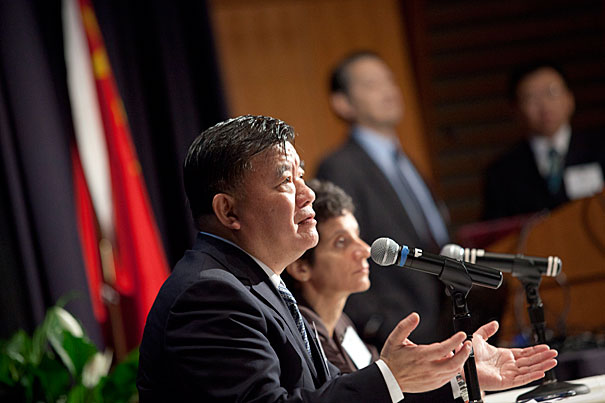Health
-

6 keys to a long, healthy life (ice cream included)
Also, why reading Ben Franklin beats climbing Mount Everest
-

Six cancers rising faster in younger adults than older ones
Large new global study fuels growing concern over trend of increases in several types

-

What’s next for GLP-1s?
Scientists eye new treatment targets for popular weight-loss drugs, from heart failure to addiction
-

Pricey blockbuster GLP-1s are costing users — and most of the rest of us, too
Health insurers are passing along cost for coverage in form of higher rates across the board, policy researcher says
-

Drinking 2-3 cups of coffee a day tied to lower dementia risk
Caffeinated tea also found to slow cognitive decline in study

-

New AI tool predicts brain age, dementia risk, cancer survival
Unlike other AI models, BrainIAC needs limited data to ID key neurological health indicators

-
Cancer clues from another species
Researchers have decoded the genome of an unlikely ally in the fight against cancer and aging, the naked mole rat, to find clues on why it resists the disease and lives 10 times as long as ordinary mice.

-
Effective treatment of painkiller addiction
Individuals addicted to prescription painkillers are more likely to succeed in treatment with the aid of the medication buprenorphine-naloxone (Suboxone), report McLean Hospital and Harvard Medical School researchers.
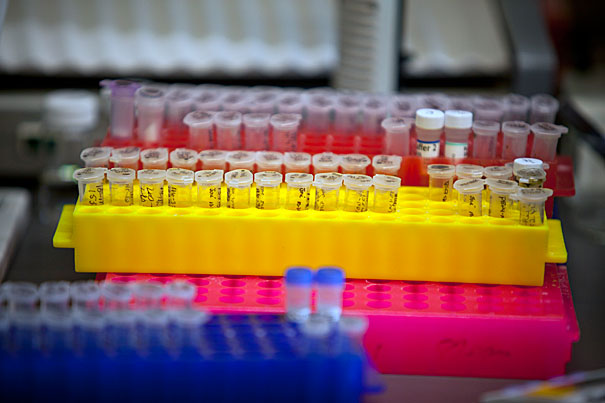
-
Why cooking counts
In a first-of-its-kind study, Harvard researchers have shown that cooked meat provides more energy than raw meat, a finding that challenges the current food labeling system and suggests humans are evolutionarily adapted to take advantage of the benefits of cooking.

-
Survival strategy of cancer cells
A new study led by a scientific team at Beth Israel Deaconess Medical Center and Harvard Medical School has uncovered another key mechanism that cancer cells use as part of their survival strategy — and once again it seems that they are using an enzyme called PKM2 to their advantage.
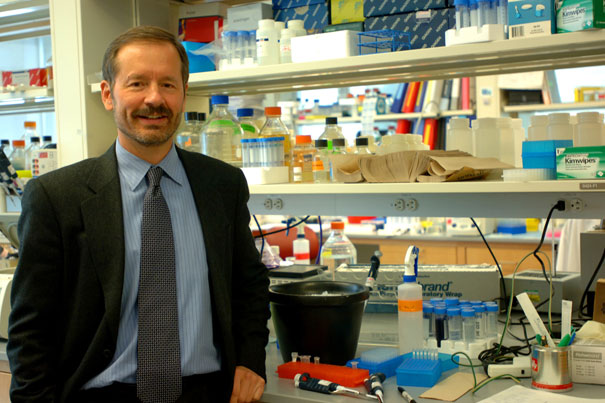
-
Mapping mollusks
Using genetic tools, researchers at Harvard and collaborating institutions have completed the most comprehensive evolutionary tree ever produced for mollusks. Described in the Nov. 2 issue of Nature, the work also serves as a proof-of-concept, demonstrating the power of genomic techniques to answer difficult evolutionary questions.
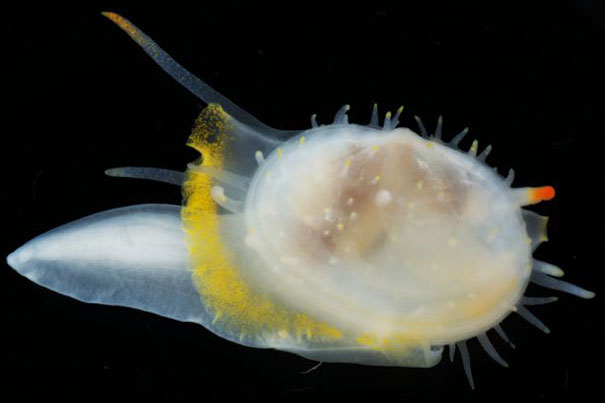
-
A better view of heart disease
In clinical settings, simple 2-D displays of human arteries are more effective than traditional 3-D rainbow models, according to Harvard researchers.
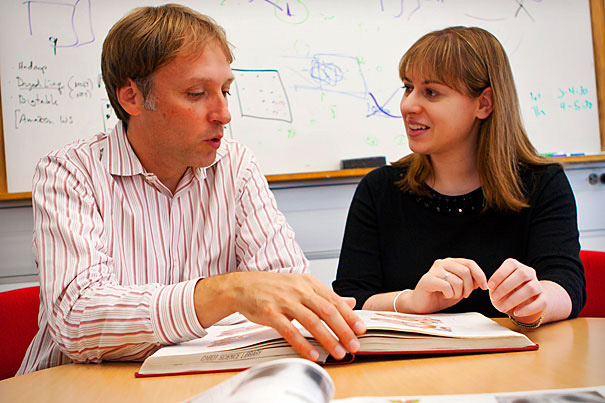
-
Understanding interference
In a discovery that might eventually lead to new biomedical treatments for disease, researchers from Harvard’s Department of Molecular and Cellular Biology have identified two types of RNA that are able to move between cells as part of a process called RNA-interference (RNAi).
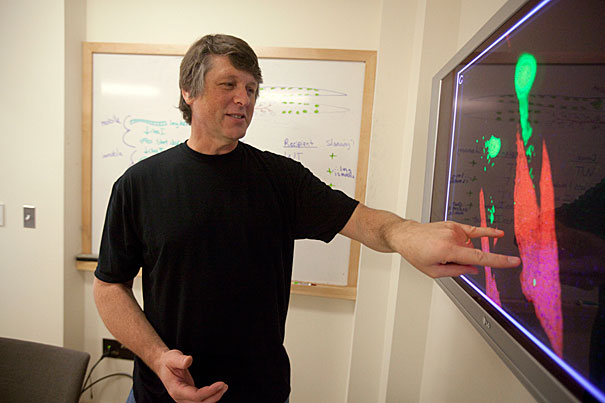
-
Affordable cancer treatments available
Report reveals that readily available and affordable cancer prevention, treatment, and pain relief interventions could decrease deaths and improve the lives of millions in developing countries.
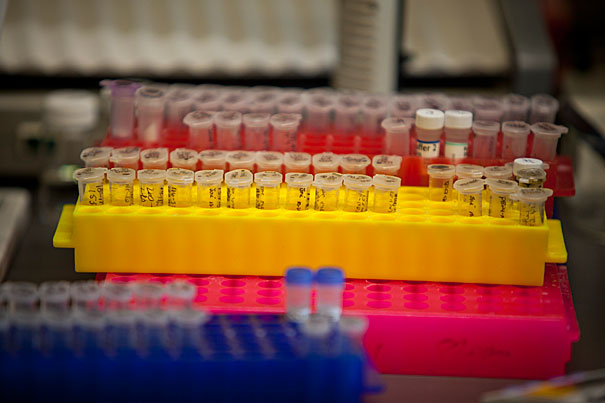
-
New way to explore how life, disease work
Researchers have built a map that shows how thousands of proteins in a fruit fly cell communicate with each other. This is the largest and most detailed protein interaction map of a multicellular organism, demonstrating how approximately one-third of the proteins cooperate to keep life going.

-
Breathing easier with lung regeneration
Harvard researchers have cloned stem cells from the airways of the human lung and have shown that these cells can form into the lung’s alveoli air sac tissue. Mouse models suggest that these same stem cells are deployed to regenerate lung tissue during acute infection, such as during influenza.
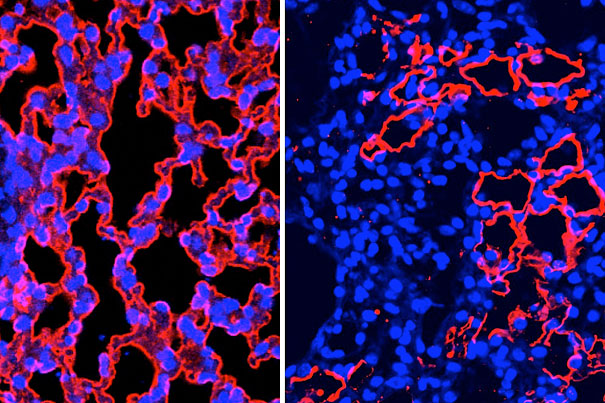
-
Nose to nose with mental illness
Miami Dolphins wide receiver Brandon Marshall talked to a Harvard audience about his struggles with mental illness in a forum at Emerson Hall Oct. 24.

-
Gestational BPA exposure growing concern
Exposure in the womb to bisphenol A (BPA) — a chemical used to make plastic containers and other consumer goods — is associated with behavior and emotional problems in young girls, according to a study led by researchers at Harvard School of Public Health.

-
Food reform to fight obesity
Panelists at a Harvard School of Public Health Forum Oct. 20 said that changing agriculture policy may be necessary to reform the nation’s diet, which is blamed for worsening current epidemics of obesity and diabetes.
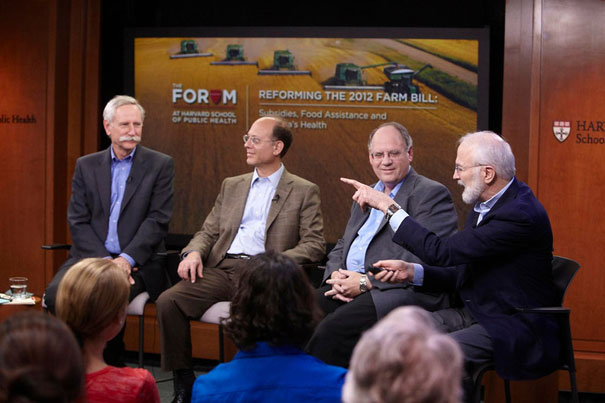
-
A child’s memory in military time
Harvard specialists discussed research on memory development during a seminar aimed at helping military families talk to their children about deployments and homecomings.
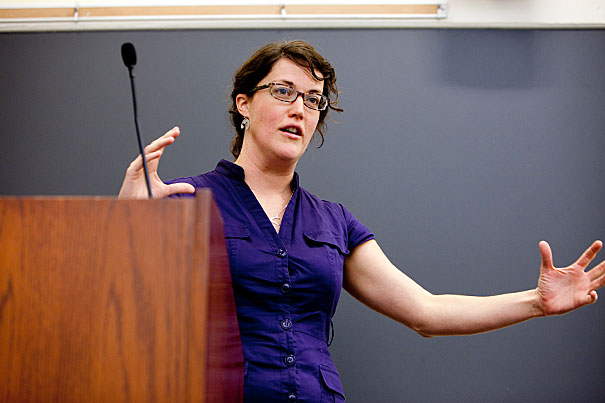
-
Colon cancer connection
Scientists at Harvard-afilliated Dana-Farber Cancer Institute and the Broad Institute have found strikingly high levels of a bacterium in colorectal cancers, a sign that it might contribute to the disease and potentially be a key to diagnosing, preventing, and treating it.
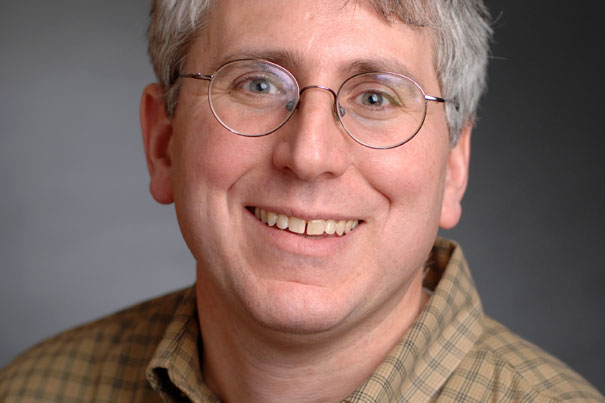
-
Initiative challenges drug crisis
Taking aim at the alarming slowdown in the development of new and lifesaving drugs, Harvard Medical School is launching the Initiative in Systems Pharmacology, a comprehensive strategy to transform drug discovery by convening biologists, chemists, pharmacologists, physicists, computer scientists, and clinicians to explore together how drugs work in complex systems.

-
Harvard surgeons perform hand transplant
Fourteen Harvard surgeons, supported by 36 anesthesiologists, radiologists, nurses, and other medical personnel at Harvard-affiliated Brigham and Women’s Hospital, worked for 12 hours to give a new pair of hands to a 65-year-old Revere man who lost both arms below the elbows and both legs below the knees as a result of a septic infection in 2002.
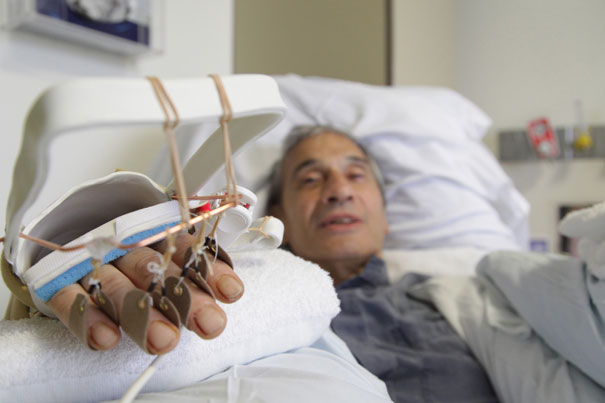
-
Gauging the effects of the BP spill
Research into the effects of last year’s massive BP oil spill in the Gulf of Mexico highlights the flexibility of the community of microbes living in the ocean’s depths.
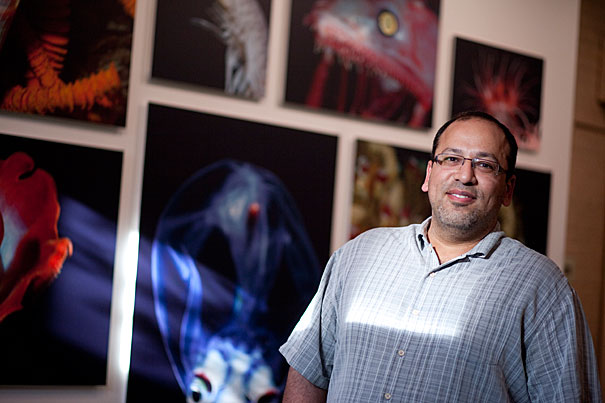
-
Dialing down sickle cell disease
Flipping a single molecular switch can reverse illness in an animal model of sickle cell disease, according to a study by Harvard researchers at Children’s Hospital Boston and Dana-Farber Cancer Institute.
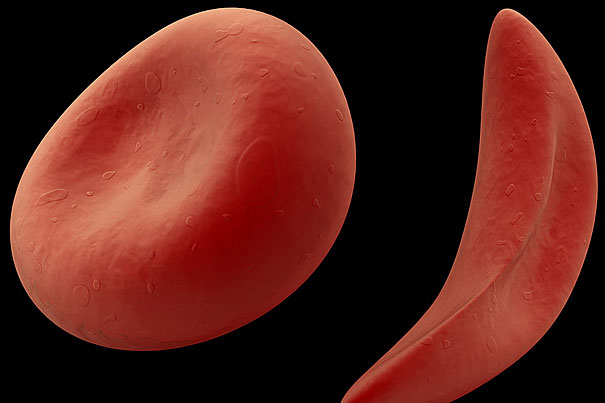
-
Study locally, think globally
A new Harvard Medical School topic helps to train future physicians in the expanding field of global health.
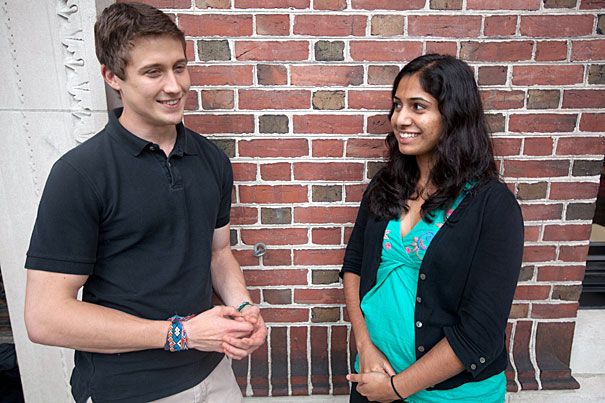
-
Where (tiny) form follows function
A professor studies how the structure of large proteins influences how we feel heat, examining how the proteins behave and interact with molecules around them.
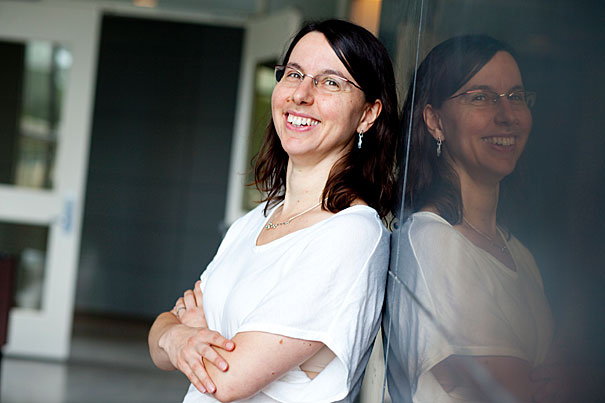
-
Wyss Institute project targets sepsis
The Wyss Institute for Biologically Inspired Engineering at Harvard has been awarded a $12.3 million, four-year grant from the Defense Advanced Research Projects Agency to develop a treatment for sepsis, a commonly fatal bloodstream infection.
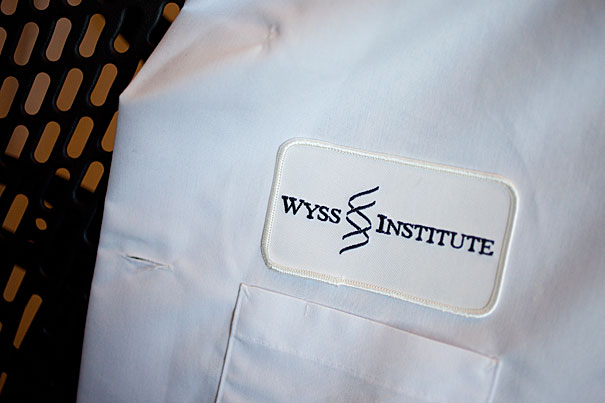
-
Health care disparities for disabled
Two decades after the Americans with Disabilities Act went into effect, people with disabilities continue to face difficulties meeting major social needs, including obtaining appropriate access to health care facilities and services.
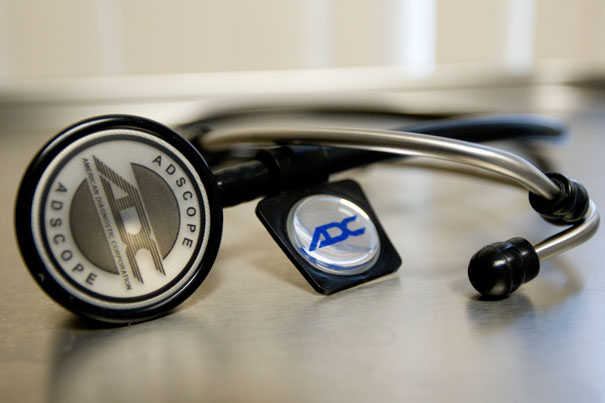
-
Stem cell lessons
Five years after first gaining institutional permission to attempt to produce stem cell lines via somatic cell nuclear transfer (SCNT), two Harvard researchers and a former Harvard postdoctoral fellow have closed the loop with a flurry of new studies and a commentary in several leading journals.
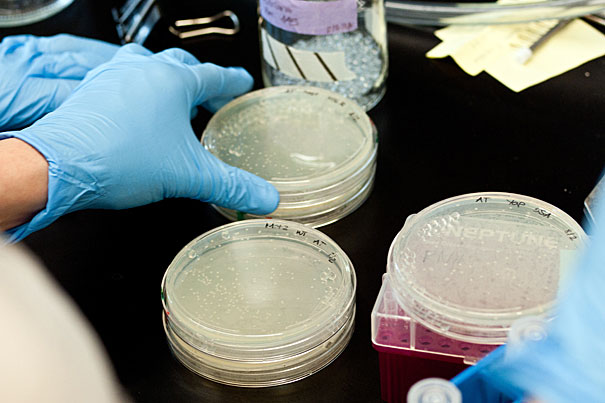
-
Biomarker for Huntington’s identified
In a new research paper published in the Proceedings of the National Academy of Sciences Early Edition online, Harvard-affiliated researchers identify a transcriptional biomarker that may assist in the monitoring of Huntington’s disease activity and in the evaluation of new medications.
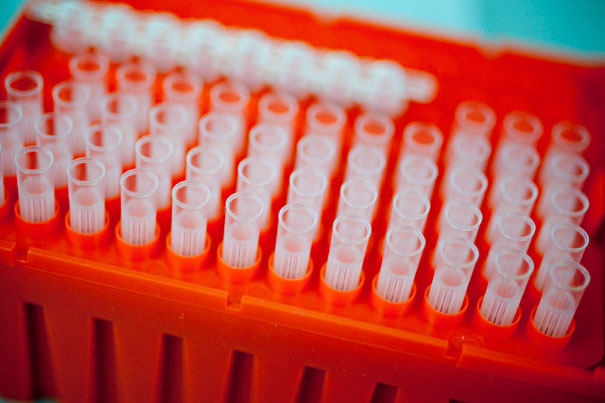
-
On the cusp of new transplant era
With the advent of new techniques and anti-rejection drugs, organ transplantation stands on the threshold of a new era, where once-radical surgeries such as face transplants will seem routine, says Bohdan Pomahac, the Brigham and Women’s Hospital surgeon and Harvard Medical School professor who led recent face transplant surgeries.
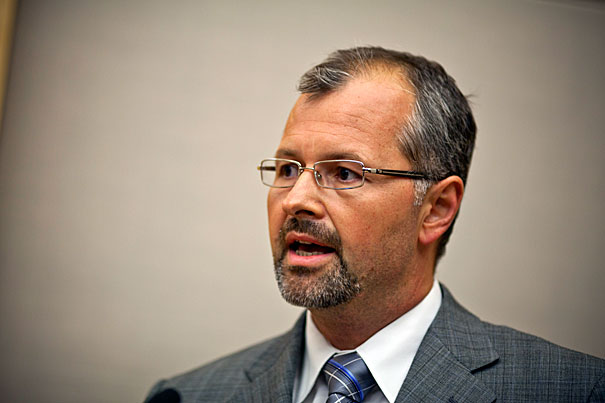
-
Major study on schizophrenia, bipolar
Looking at large samples, an international consortium — that included involvement by scientists at the Broad Institute of Harvard and MIT and Harvard-affiliated Massachusetts General Hospital (MGH) — has identified 10 genetic risk factors that contribute to either schizophrenia or bipolar disorder and discovered strong evidence for three genes being implicated in both diseases.
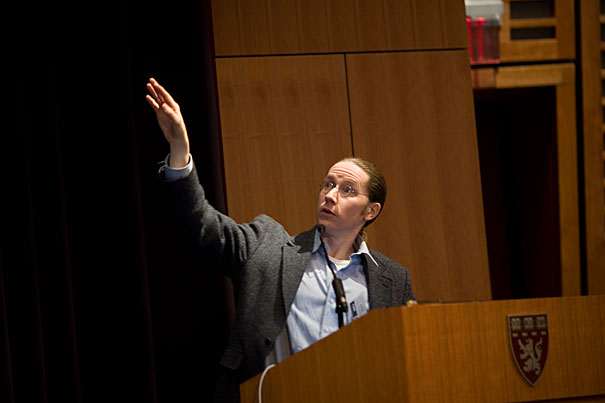
-
Animal scents
A Harvard study of how mice respond to scent cues from potential mates, competitors, and nearby predators has laid a foundation for further investigations that may eventually lead to a greater understanding of social recognition in the animal brain, with implications for a host of human disorders ranging from autism to post-traumatic stress disorder.
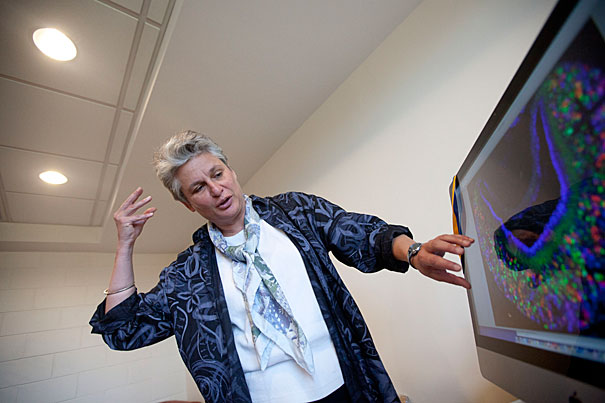
-
The battle for medicine’s soul
Author and surgeon Atul Gawande says effective medicine requires high-quality care and solid research. But it also requires a willingness to adapt.
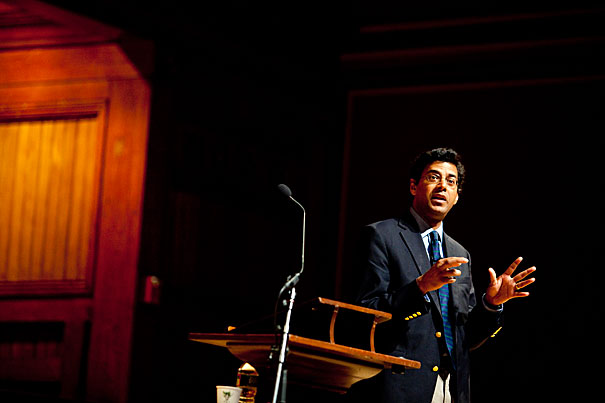
-
Improving health care in China, U.S.
Health officials from China and the United States gathered at Harvard Medical School to examine common challenges and solutions as the two global giants seek to reform national health care systems to improve access and care, while lowering costs.
